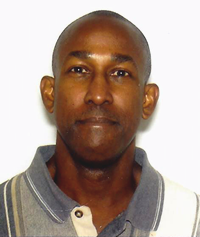 by Rolaant McKenzie
by Rolaant McKenzie
February 16, 2025
Sometimes a regrettable mistake made in the past can have long-range effects over the subsequent course of one’s life and the lives of others. But the consequences are not always negative.
Such was the case in the Star Trek: The Next Generation episode, Tapestry (Season 6, Episode 15, 2/15/1993). While on a diplomatic mission, Captain Picard is mortally wounded in a terrorist attack by an energy weapon fired at his chest that ruins his artificial heart, causing him to go into cardiac arrest. Though quickly transported to sickbay on the USS Enterprise, he fades into unconsciousness as he hears Dr. Crusher’s dismay at his rapidly falling vitals.
 Picard awakens in a bright white void where he is met by Q, a very powerful alien he had encountered previously who has the ability to manipulate time, space, and the laws of physics at will. Q informs him that he is dead and that he might have lived if he had a real heart. Picard said he had lost his heart as a young Starfleet officer when he was stabbed in a bar fight on Starbase Earhart, an event he regretted and wished he could go back in time and do differently.
Picard awakens in a bright white void where he is met by Q, a very powerful alien he had encountered previously who has the ability to manipulate time, space, and the laws of physics at will. Q informs him that he is dead and that he might have lived if he had a real heart. Picard said he had lost his heart as a young Starfleet officer when he was stabbed in a bar fight on Starbase Earhart, an event he regretted and wished he could go back in time and do differently.
Q sends Picard back in time to grant him the chance to change this pivotal event in his life. Having successfully avoided the fight, getting stabbed, and retaining his real heart, Q returned Picard to the present. In this altered timeline, he was not captain of the Enterprise but a junior lieutenant doing a dreary, tedious job of running data analyses and delivering reports to his superiors.
Picard protests to Q, telling him that he cannot live the life he had just seen, one bereft of anything that makes life worthwhile. Q reminds Picard that by avoiding the bar fight, he learned to play it safe. As a result, with no agenda, he drifted from one assignment to another, never achieving anything remarkable, and was never noticed.
Picard realizes that though being stabbed in the heart nearly killed him, it helped him to realize that life was too precious to waste by playing it safe. As a result, he was willing to take risks and capitalize on opportunities to make a notable difference in the universe.
Picard asks Q to let him undo the changes he made. He is sent back moments before the bar fight, but this time he does not avoid it and is stabbed in the heart as before. Picard then awakens in the Enterprise sickbay, pleased that his artificial heart is working again and that the mistake he made in his youth helped to form a beautiful, satisfying tapestry of life.
There are many examples in the Bible where God turned the mistakes, even the disobedience, of people into something good. This is not to excuse or justify the mistakes or disobedience (Romans 3:5-8), but it shows God’s ability to take even our failures and graciously bring good out of them.
Jonah was told by God to go to Nineveh, the great capital of the Assyrian Empire, to proclaim divine judgment against the wickedness of its people (Jonah 1). Instead, Jonah disobeyed God and boarded a ship heading in the opposite direction to Tarshish. He was aware of the wickedness of the city and probably did not want them to repent and avoid the judgment of God.
But God would not let Jonah get away, so He sent a great sea storm. It was so strong that the experienced mariners could not navigate through it, and they feared for their lives as the ship threatened to break apart. When Jonah told them who he was and that the Lord God of heaven and earth had sent the storm on account of his running away from God’s task for him, they frantically asked him what they should do. He told them that they needed to throw him into the sea for it to be calm.
Not wanting to do this, the sailors desperately tried to row to land, but the increasing storm would not let them. Reluctantly, they did what Jonah asked. As soon as they tossed him into the sea, it immediately became calm. Seeing this, the men feared the Lord greatly, offered a sacrifice, and made vows to serve Him.
In the meanwhile, God appointed a great fish to swallow Jonah, and there he remained for three days and nights for his trip on the way to his divinely appointed task in Nineveh, which eventually led to the repentance of its people and mercy from God.
God took the initial disobedience of Jonah and brought Gentile sailors face to face with the reality of His power and gracious salvation from a watery grave. Like Jesus’ disciples in the boat when He calmed the storm (Mark 4:35-41), these sailors moved from fearing the storm to fearing God, who calmed the storm, which caused them to place their faith in Him.
Regarding Mary, the sister of Lazarus and Martha, Jesus declared that wherever the gospel is preached, the costly gift of fragrant anointing perfume she gave as preparation for His burial would be a memorial of her love and devotion to Him (Matthew 26:6-13; Mark 14:3-9; John 12:1-8). Likewise, Jonah’s prophetic ministry is affirmed wherever the gospel is proclaimed, and his ordeal inside the belly of the great fish is memorialized by Jesus as an analogy of His own death and resurrection (Matthew 12:38-41), assuring mercy, forgiveness, and salvation to anyone who trusts in Him.
Saul of Tarsus was educated in Jerusalem by Gamaliel, one of the most eminent rabbis of his day. He so eagerly immersed himself in the law of God and the ancestral traditions of his people that he excelled in Judaism beyond many of his contemporaries (Acts 22:3; Galatians 1:14). Saul’s zeal for Judaism caused him to be enraged against followers of Jesus, and he persecuted the church to the death (Acts 8:3-4, 22:4-5, 26:9-11).
But God used Saul’s persecution to get Christians to spread the gospel beyond Jerusalem into the surrounding regions of Judea and Samaria. While on the road to Damascus to capture and imprison any Christians he could find there, Saul had a life-altering encounter with Jesus (Acts 9:1-31). He turned the zeal of Saul (now called Paul) against Him and redirected it and the learning he had acquired to make him a powerful preacher of the gospel, even to being the writer of most of the letters of New Testament Scripture.
It was the apostle Paul, inspired by God the Holy Spirit, who wrote:
“And we know that God causes all things to work together for good to those who love God, to those who are called according to His purpose. For those whom He foreknew, He also predestined to become conformed to the image of His Son, so that He would be the firstborn among many brethren; and these whom He predestined, He also called; and these whom He called, He also justified; and these whom He justified, He also glorified.” (Romans 8:28-30)
Our lives are composed of numerous actions and events along with varying degrees of consequences. The fabric of our lives includes sins we have committed against God, each other, and ourselves. Like Captain Picard in the Star Trek episode, we may experience regret and guilt over the mistakes and sins of the past and wish we could go back in time to correct them. But we need not fret over what we cannot go back and change.
God has provided His own remedy through the love, mercy, and grace He has given to us in Jesus Christ. As with the prophet Jonah and the apostle Paul, He can turn around even the worst of our transgressions and cause them to work together for good and make out of your life a beautiful tapestry of His glorious love, grace, and salvation.
© 2025 Rolaant McKenzie – All Rights Reserved
E-Mail Rolaant McKenzie: rolaant@gospeloutreach.net
Website: http://www.gospeloutreach.net/





